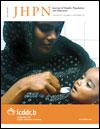Factors Associated with Treatment Compliance in Hypertension in Southwest Nigeria
DOI:
https://doi.org/10.3329/jhpn.v29i6.9899Keywords:
Adherence, Cardiovascular diseases, Community-based studies, Compliance, Cross-sectional studies, Hypertension, NigeriaAbstract
Hypertension is an important condition among adults, affecting nearly one billion people worldwide. Treatment with appropriate medication is a key factor in the control of hypertension and reduction in associated risk of complications. However, compliance with treatment is often sub-optimal, especially in developing countries. The present study investigated the factors associated with self-reported compliance among hypertensive subjects in a poor urban community in southwest Nigeria. This community-based crosssectional study employed a survey of a convenience sample of 440 community residents with hypertension and eight focus-group discussions (FGDs) with a subset of the participants. Of the 440 hypertensive respondents, 65.2% were women, about half had no formal education, and half were traders. Over 60% of the respondents sought care for their condition from the hospital while only 5% visited a chemist or a patent medicine vendor (PMV). Only 51% of the subjects reported high compliance. Factors associated with high self-reported compliance included: regular clinic attendance, not using non-Western prescription medication, and having social support from family members or friends who were concerned about the respondent’s hypertension or who were helpful in reminding the respondent about taking medication. Beliefs about cause of hypertension were not associated with compliance. The findings of the FGDs showed that the respondents believed hypertension is curable with the use of both orthodox and traditional medicines and that a patient who ‘feels well’ could stop using antihypertensive medication. It is concluded that treatment compliance with antihypertensive medication remains sub-optimal in this Nigerian community. The factors associated with high self-reported compliance were identified. More research is needed to evaluate how such findings can be used for the control of hypertension at the community level.
DOI: http://dx.doi.org/10.3329/jhpn.v29i6.9899
JHPN 2011; 29(6): 619-628
Downloads
1274
1099

